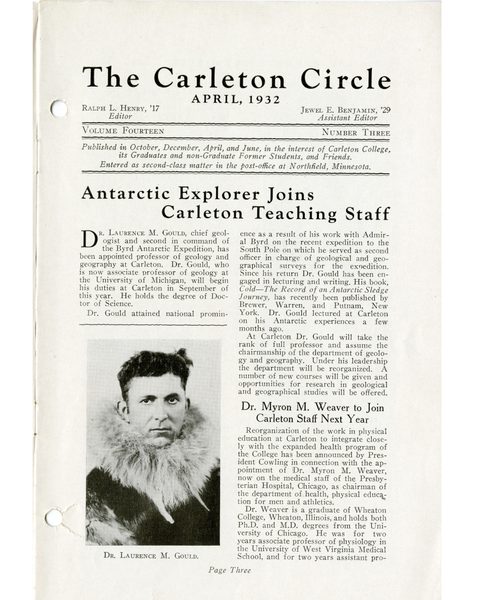Beginnings • The Post-War Years • The New Millennium • Student Work Off-Campus
Founded in 1866 by the Minnesota Conference of Congregational Churches, many of Carleton’s first engagements with the wider world were associated with its Christian mission. A number of Carleton’s earliest graduates went on to undertake missionary work in China, Japan, India, Turkey, as well as throughout the United States. Some of Carleton’s earliest international students first become acquainted with Carleton through these missionary connections.
The study of foreign languages at Carleton also has its roots in Carleton’s earliest years: initially, Latin and Greek, with French and German joining them soon thereafter. The early 20th century saw an international dimension introduced to new areas of Carleton’s curriculum, from international relations to geology, with the help of notable figures like Frank B. Kellogg and Laurence M. Gould.
Gould joining the Carleton faculty

1932
Renowned polar explorer Laurence McKinley Gould joined the Carleton faculty in 1932 as chair of Carleton’s new Geology Department. He had served as the chief scientist of the Byrd expedition to Antarctica in 1928–30, becoming the first geologist to reach the interior of the Antarctic continent. Gould would later assume the Carleton presidency, from 1945 to 1962.



